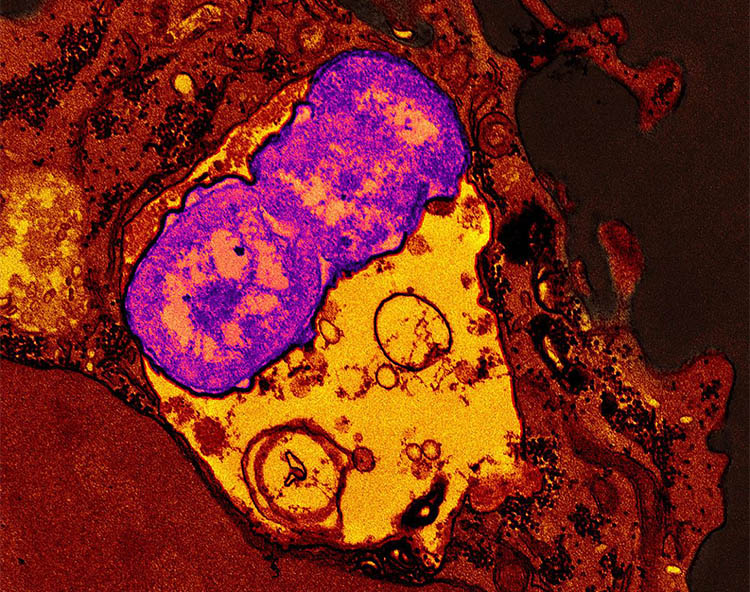IRP investigates multidrug-resistant bacterium emerging in community settings
Researchers study confluence of multidrug resistance and hypervirulence among Klebsiella pneumoniae
New “hypervirulent” strains of the bacterium Klebsiella pneumoniae have emerged in healthy people in community settings, prompting a National Institutes of Health research group to investigate how the human immune system defends against infection. After exposing the strains to components of the human immune system in a laboratory “test tube” setting, scientists found that some strains were more likely to survive in blood and serum than others, and that neutrophils (white blood cells) are more likely to ingest and kill some strains than others. The study, published in mBio, was led by researchers at NIH’s National Institute of Allergy and Infectious Diseases (NIAID).
“This important study is among the first to investigate interaction of these emergent Klebsiella pneumoniae strains with components of human host defense,” Acting NIAID Director Hugh Auchincloss, M.D., said. “The work reflects the strength of NIAID’s Intramural Research Program. Having stable research teams with established collaborations allows investigators to draw on prior work and quickly inform peers about new, highly relevant public health topics.”
This page was last updated on Wednesday, September 6, 2023
